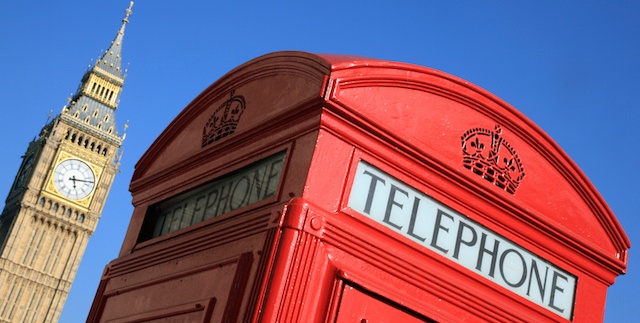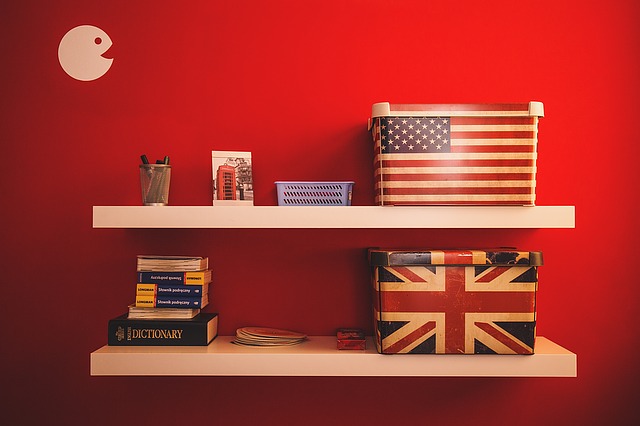You say p’TAYto and I say p’TAdo. Although both America and England speak the same language, it’s not hard to tell the difference between an American and a British person.
The English language is spoken in over 50 countries, with over 375 million native speakers worldwide. Although the language largely remains the same, each region has its own dialects and nuances. The most common regional comparison that is evaluated and discussed is usually the difference between American English and British English. The British take ownership and custodianship of the language, whereas America has played a huge role through its influence, in contributing towards its further expansion and propagation to different parts of the world. For a non-native speaker, it may be more difficult to spot or identify the difference between American English and British English, but for natives, they can usually tell in the first few seconds of the conversation and identify which one is which.
On the surface, it may look like it’s basically the same language with a different accent, but when you slice in deeper, you begin to understand the various intricacies in grammar, pronunciation, spelling, vocabulary and much more. So whether you are a native English speaker or not, you are bound to learn something new in this short yet comprehensive guide highlighting the differences between American English vs. British English. Let’s dive right in!
History
The English language was introduced to the Americas by the first settlers in the 16th and 17th centuries. At that time, spellings were not yet standardized. When the earliest dictionaries were compiled in America by Noah Webster, he took it upon himself to simplify the spellings for not just the ease of use but also to identify cultural independence between the British and the Americans. This is where the –ell- were simplified to –el- in words like traveller/traveler, cancelled/canceled, jeweller/jeweler. We’ll go deeper into this a little later.
Pronunciation
The main differences in speaking began because the first settlers used to speak with a pronounced ‘r’ sound, also known as rhotic speech. These are words where the ‘r’ is pronounced before a consonant as well words that end with ‘r’ such as park, bark, large and bar, far, car, etc. Meanwhile, back in England, the elite started dropping their ‘r’ sounds and toning them down which was picked up as fashion by the general population and hence became common. Words like ‘better’ became bett-uh and car and far became cah and fah, with the exception of the ‘r’ being pronounced when the next word starts with a vowel sound.
Spelling
Thanks to Noah Webster, the American lexicographer, you can find quite a few differences in American spellings. He was frustrated by the inconsistencies in the American English spellings and wanted to spell English words the way they are pronounced, and remove letters that didn’t match the sound. British spellings were influenced by the French and hence not spelled (or shall we say ‘spelt’) as they were spoken, as in the case with diarrhoea, parlour, colour, cheque, litre, queue etc. He made an active effort to simplify the principles of spelling for Americans to not only easily memorize them but also maintain a distinct flavour from their British counterparts. According to Webster, Americans needed to show the world that they have attained independence. A general rule of thumb to remember is –our used in a word is almost always British English and the American English version will be spelt with –or.
For example
British English American English
Colour Color
Parlour Parlor
Favour Favor
Neighbour Neighbor
Similarly, the use of –ter is American and –tre is British
For example
British English American English
Litre Liter
Centre Center
Theatre Theater
Past Tense Verbs
Even past tense verbs vary between American English and British English. For example, the past tense of the word “learn” in American English is “learned” while in British it’s either “learned” or “learnt”. The same goes to words such as dreamed – dreamt, spelled – spelled, leaned – leant, burned – burnt. Overall, Americans tend to use “–ed” ending, while British prefer the “–t” ending. Past participle forms are also different between the two nations. An American would probably say, “I’ve never gotten caught” while the British may say “I never got caught”. In American English, both “got” and “gotten” are correct, whereas British English only uses “got”.

3. Collective Nouns
When you hear the word collective nouns, the first thing that comes to your mind is a group of people or objects. Examples of collective nouns are;
Staff: A group of employees
Band: A group of musicians
Team: A group of athletes
As far as American English is concerned, collective nouns are singular. It’s common to hear Americans say “the team is hardworking”. On the other hand, British English view collective nouns as either singular or plural and it’s common in British English to say both “the team are hardworking” and “the team is hardworking”.
4. Auxiliary Verbs
Commonly known as “helping verbs”, auxiliary verbs help form a grammatical function. We use them to add information about modality, voice, and time. The auxiliary verb “shall”, for instance, is used by the British to express the future, but only for we and I. In British English you would say, “I shall do it when I have time.” Nevertheless, “shall” is hardly used in American English because it’s considered very formal. Instead, Americans use “will”; for example, “I will go out tonight”. When it comes to posing questions, the British would probably say, “Shall we go home?” whereas Americans might say, “Should we go home?”
Differences also come out when the two groups want to express a lack of obligation. For example, Americans would say, “You do not (don’t) need to go shopping if you don’t want to.” While in British English you could say, “You needn’t go shopping if you don’t want to.”
5. Vocabulary
Vocabulary is one of the main things when it comes to the difference between American English and British English. Many of the phrases mean entirely different things in the two nations and some words used in that specific sense are almost unique to each side. Due to globalization, the internet, and general media exposure, non-native speakers do end up using either of these words interchangeably. When you dive into regional specifics, you can spot the differences easily. Here are some of the words that are almost uniquely used locally and may mean entirely different things on the other side of the pond.
Bonnet (British) and Hood (American): Front of a car
Holiday (British) and Vacation (American): An extended period of recreation
Flat (British) and Apartment (American): A room that forms a single residence
Petrol (British) and Gasoline (American): Refined petroleum used as fuel
Garden (British) and Yard (American): Area outside your home
Chemist (British) and Drugstore (American): Place to buy prescription drugs
Biscuit (British) and Cookie (American): Baked dough snack
Trainers (British) and Sneakers (American): Sport shoes
Boot (British) and Trunk (American): Back of a car
Taxi (British) and Cab (American): Ride for hire vehicle
Motorway (British) and Highway (American): Major road arteries
Number Plate (British) and License Plate (American): Car number plates
Queue (British) and Line (American): People waiting
Trousers (British) and Pants (American): Formal legwear
Wardrobe (British) and Closet (American): Where clothes are organized and stored
Conclusion
If you take a deeper look, the difference between American English and British English goes way beyond just the pronunciation and accent. At the end of the day, they are the same language and hence mutually intelligible, although you may have the occasional trouble with slang and colloquialisms.
You may also find it surprising to know that although the British English is considered to be the ‘real thing’, the most prevalent version of English used in everyday and informal conversations seems to be more of American English. The popularity of Hollywood, the American music industry and American celebrities can be viewed as the main influence.
Should you learn British English or American English? It depends on where you are thinking of living or working. Other than that, it’s entirely up to you! Check out our related blog post – Where is English Spoken?
Andrie Steliou
Latest posts by Andrie Steliou (see all)
- 8 Ways to Help Keep Your Child Focused and Engaged in Online Learning - October 19, 2022
- How to Improve Social Intelligence Skills? - May 10, 2022
- How to Improve Organizational Skills at Workplace? - May 6, 2022

